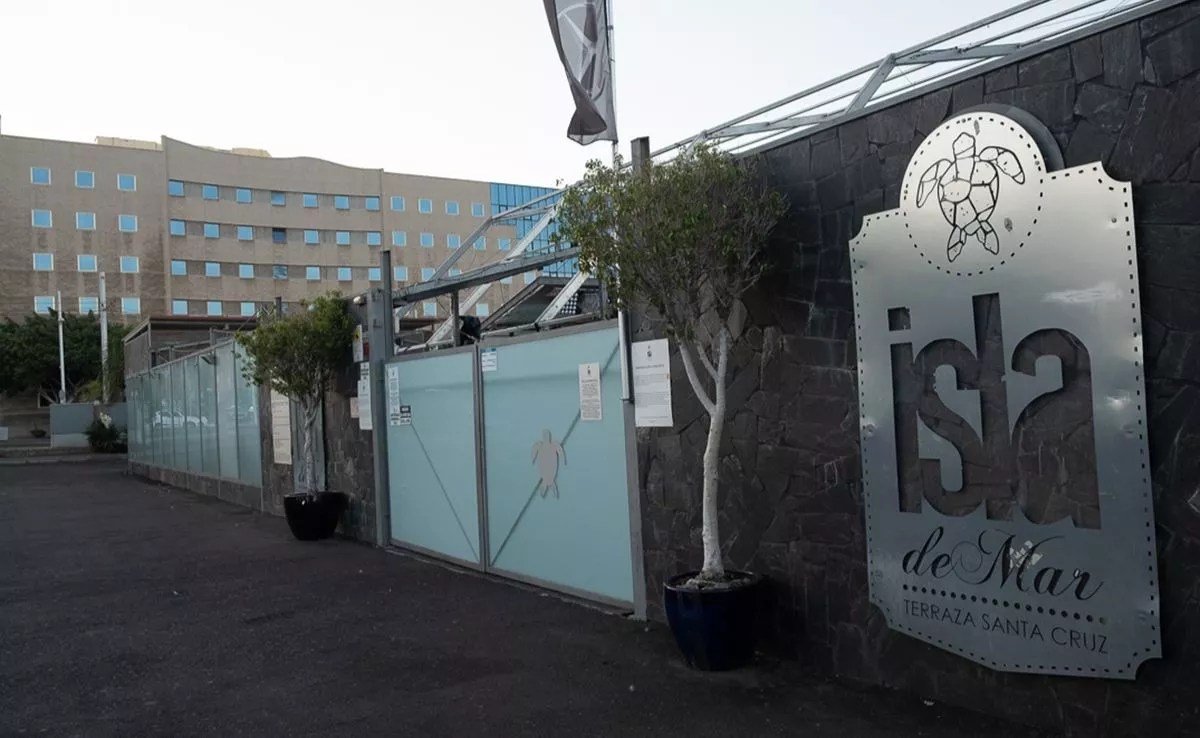The Supreme Court has considered an appeal of the brotherhood of the Slavery of the Holy Christ of La Laguna (Tenerife) against a sentence that annulled a provision of its statutes that excluded women to participate in that religious organization.
Devotees of the Slavery of Christ of La Laguna denounce this brotherhood and the Bishopric of Tenerife for vetoing women
Know more
Judge Gabriela Reverón, head of the Court of First Instance number 2 of Santa Cruz de Tenerife, annulled in judgment of March 2020 excluding women for violation of fundamental rights equality, non-discrimination based on sex and association, endorsed decision later by the Provincial Court.
But the Supreme Court has upheld the appeal and appeal filed by the Pontifical, Royal and Venerable Slavery Association of the Holy Christ of La Laguna and consequently dismissed the claim that Teresa Laborda had filed on behalf of 35 women who since 2008 have been asking for admission to both the brotherhood and the Bishopric.
The Civil Chamber I has weighed the conflict that occurs between the self-organizing autonomy implicit in the right of association and religious freedom and the right to associate without discrimination on grounds of sex. And it has concluded that fundamental rights, as established by a Constitutional ruling, “have to be applied in a nuanced way” in private relationships to make them compatible “with other values or parameters that have their ultimate origin in the principle of the autonomy of the will” .
The Slavery of the Holy Christ has been formed only by men since 1659, recalls the room, and is an association constituted in accordance with canon law with an exclusively religious purpose. The core of the right of association includes both the right to associate and to establish one’s own organization, which in turn extends to statutory regulation of the causes and the procedure for the admission and expulsion of partners.
Although article 53.1 of the Constitution establishes that fundamental rights such as equality bind the public powers, this does not imply an absolute exclusion of other possible recipients, but it is an application “with a different degree of intensity”, according to the magistrates.
“In the field of private relations […] Fundamental rights and, among them, the principle of equality, must be applied in a nuanced way, since they must be made compatible with other values or parameters that have their ultimate origin in the principle of the autonomy of the will, and that are manifested through the rights and duties that arise from the contractual relationship created by the parties or from the corresponding legal situation “, according to the judgment of 177/1988 of the TC, which the Supreme Court cites.
For the Supreme Court, it must be taken into account if it is a question of private associations that hold a privileged position or dominance in the economic, social or professional field, in which the decision of the association not to admit the incorporation of a partner can generate in the affected a significant and unjustified damage.
In this case, the Slavery of Christ cannot be classified as a dominant association, because its activities and purposes “are strictly and exclusively religious”, alien to any economic, professional or labor connotation. Also its public and festive manifestations, translated into processional acts, also have an unequivocal religious character and are protected by the fundamental right to religious freedom and worship, establishes the Supreme Court.
For the magistrates, the Slavery of the Holy Christ does not maintain a monopoly or exclusivity situation in the organization of the processional activities of Holy Week and other acts of worship, but is one more of the brotherhoods and brotherhoods of La Laguna. There is also no canonical impediment to be able to promote the constitution of new brotherhoods made up of men and women or only women, the Supreme Court abounds.
It recalls the sentence that the European Convention on Human Rights and Fundamental Freedoms establishes that religious freedom cannot be subject to more restrictions than those provided “for public safety, the protection of order, public health or morals, or the protection of the rights or freedoms of others “.
The chamber cites the jurisprudence of the European Court of Human Rights (ECHR), which establishes that except in very exceptional cases, the right to freedom of religion excludes any assessment by the State on the legitimacy of religious beliefs or on the modalities of expression of these.
The ECHR has established that “the principle of religious autonomy prohibits the State from forcing a religious community to admit or exclude an individual or to entrust him with any religious responsibility,” recalls the court, made up of Ignacio Sancho Gargallo, Rafael Sarazá Jimena, Pedro José Vela Torres and, as speaker, Juan María Díaz Fraile.














